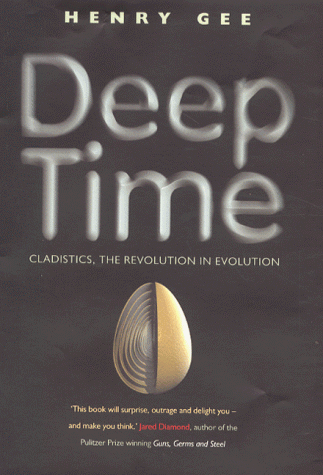Education
At the University of Leeds and completed his Doctor of Philosophy at Fitzwilliam College, Cambridge.



(For a long time, popular scientists have told us that by ...)
For a long time, popular scientists have told us that by looking at a fossilised bone we could tell whether it belonged to our ancestors or not. This is not true. In Deep Time, Henry Gee, introduces for the first time in the popular science market a new way of thinking that has revolutionised the way that scientists are approaching the past - Cladistics. Cladistics ignores story-telling and authority and proposes a method based on shared characteristics, rather than ancestry and descent. As a result of using this new method Henry Gee is able to show us the wealth of new ideas that is radically altering our notions of the past: Dinosaurs with feathers; why fish developed fingers; what it means to be human.
http://www.amazon.com/gp/product/1857029860/?tag=2022091-20
At the University of Leeds and completed his Doctor of Philosophy at Fitzwilliam College, Cambridge.
He is a senior editor of Nature, the scientific journal. Gee earned his Bachelor of Science He joined Nature as a reporter in 1987 and is now Senior Editor, Biological Sciences. He has published a number of books, including Before the Backbone: Views on the Origin of the Vertebrates (1996), In Search of Deep Time (1999), A Field Guide to Dinosaurs (illustrated by Luis Rey) (2003) and Jacob"s Ladder (2004).
Gee is a noted Tolkienist and was the editor of Mallorn, the journal of the Tolkien Society, for nine issues (2008-2013).
His San Francisco trilogy The Sigil, previously available in draft form online, was published by ReAnimus Press in August and September 2012. The Accidental Species, a book on human evolution, was published by the University of Chicago Press in October 2013.
On 17 January 2014, Gee revealed the identity of pseudonymous science blogger, Doctor Isis on Twitter. Doctor Isis was an open critic of the scientific journal Nature, where Gee is a senior editors
Nature released a statement on the matter.
(For a long time, popular scientists have told us that by ...)
